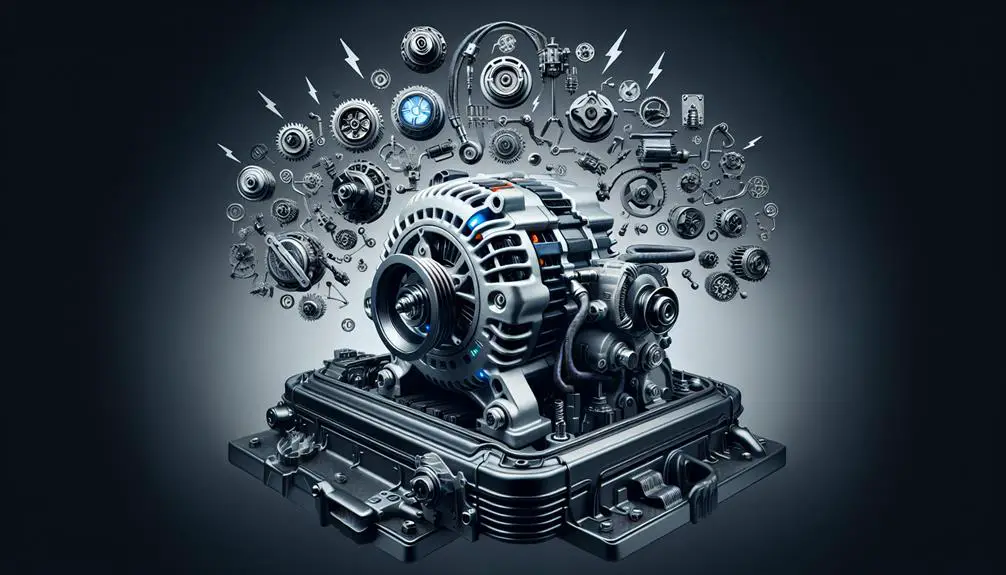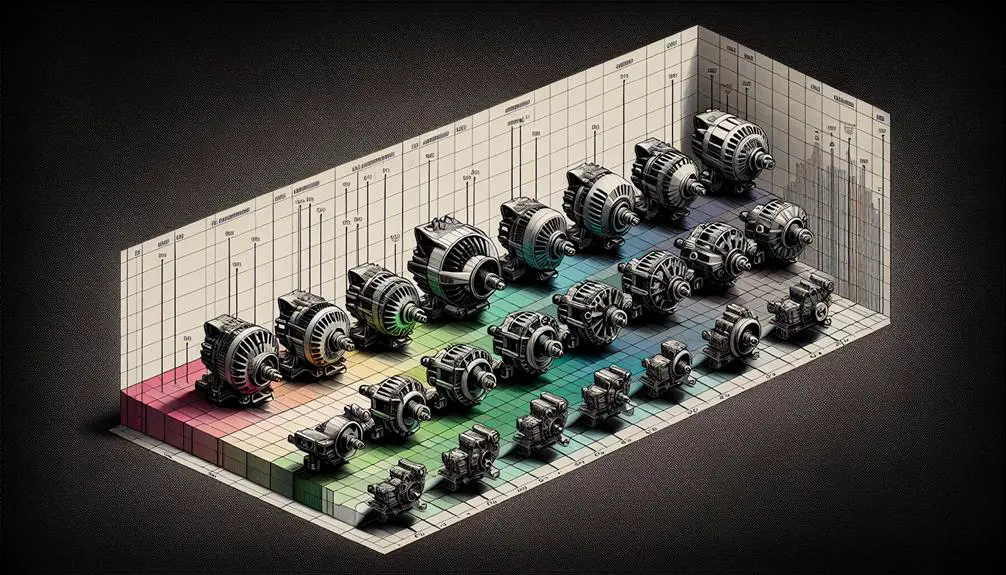The cost of an alternator varies widely, influenced by the vehicle's make and model, the choice between new or refurbished units, and labor costs. Prices can range significantly, making informed decisions crucial for cost-effective vehicle maintenance.
It's important to research and compare prices from different sources, such as dealerships, independent mechanics, and online retailers. By obtaining multiple quotes, you can make a more informed decision and potentially save money on the replacement.
Additionally, considering the warranty offered on the alternator can provide peace of mind and protection in case of any future issues. Understanding the factors that contribute to the cost of an alternator can help you budget effectively and ensure your vehicle's reliable performance.
Understanding Alternator Functions

The alternator is a key part of a car's electrical system. It turns mechanical energy into electrical energy to power the car's accessories and recharge the battery. When you drive, the alternator keeps the lights on and the music playing without using up the battery. It works by turning a belt connected to the engine, which generates electrical power.
The alternator is also important for keeping the battery charged. Without the alternator, the battery would run out of power and the car wouldn't start. The alternator makes sure the battery has just enough charge, without overcharging it.
Factors Influencing Cost
Understanding the importance of the alternator shows why replacing or repairing it can affect your budget significantly. When facing this, the cost isn't just about the part. Several factors influence the total cost.
First, the type of vehicle matters. Luxury or high-performance cars usually need more expensive alternators than standard ones because they require more power and have more complex systems. Also, the choice between a new, refurbished, or aftermarket alternator impacts the price. New parts are more expensive, refurbished parts are cheaper, and aftermarket parts are the least expensive but their quality varies.
Labor cost is another factor, which depends on how easy or hard it is to replace the alternator in your vehicle. In some cars, alternators are easy to reach, but in others, many parts must be removed, raising the labor time and cost.
Finally, where you live can affect the cost. Labor rates and part prices differ from place to place.
In summary:
| Factor | Impact on Cost |
|---|---|
| Vehicle Type | High impact |
| Part Type | Moderate to high impact |
| Labor Complexity | Variable impact |
| Location | Variable impact |
Knowing these factors helps understand the range in costs for alternator replacement and what to expect.
Price Range for Alternators

Alternator prices vary widely, mainly due to your vehicle's make and model and its electrical system's power needs. Prices range between $100 to $600 for the alternator itself. Cheaper cars may have lower costs, while luxury cars or heavy-duty trucks may have higher costs because they need more powerful alternators.
Labor costs for installation range from $50 to over $200, depending on location and the complexity of the replacement. When planning for an alternator replacement, consider these factors to avoid unexpected costs.
Choosing New Vs. Refurbished
ARTICLE TITLE: Cost of Alternators
PREVIOUS SUBTOPIC: 'Price Range for Alternators'
What Is the Average Cost of Alternator Replacement for Various Car Models?
The Hyundai alternator replacement cost can vary depending on the model. On average, the cost can range from $300 to $700. Luxury models or advanced vehicles may have higher replacement costs due to the complexity of the alternator system. It’s best to consult with a mechanic for an accurate quote.
CURRENT SUBTOPIC: 'Choosing New Vs. Refurbished'
When choosing between a new or refurbished alternator, consider the benefits and drawbacks of each. New alternators have the newest technology, longer warranties, and are less likely to have problems soon after you install them. But, they cost more. Refurbished alternators are cheaper and better for the environment because they are reused parts. However, they might not last as long and usually come with a shorter warranty.
Here's a simple comparison:
| Factor | New Alternator | Refurbished Alternator |
|---|---|---|
| Cost | Higher | Lower |
| Warranty | Longer | Shorter |
| Reliability | More | Less |
| Eco-Friendly | No | Yes |
Deciding between a new and refurbished alternator is about what's more important to you: cost, reliability, warranty length, or being eco-friendly. If saving money is your main goal and you're okay with a shorter warranty, a refurbished alternator could be a good choice. But if you want the newest technology and a longer warranty for more security, a new alternator might be better. The best option depends on your needs and what you value most.
Saving on Replacement Costs

To reduce replacement costs, consider the following strategies:
- Look into aftermarket parts and seasonal discounts from suppliers. Aftermarket parts are usually less expensive than OEM parts and often come with warranties.
- Ask for discounts when sales are low.
- If possible, consider doing some repairs yourself to save on labor costs. Online resources can teach you how to make repairs, such as replacing an alternator.
- Buying a refurbished alternator can also save money and may come with a warranty. Make sure to buy from a trusted source.
- Joining an automotive club or online community can help you find parts at lower prices and offer advice and support for repairs.
Conclusion
To sum up, the price of an alternator can change based on what it's for, the type of car you have, and if you buy a new one or a fixed-up one. Prices can be very different, so think carefully about your choices.
If you choose a fixed-up alternator to save money, make sure it has a good guarantee. Buying the right alternator is important because it helps your car run well and avoids future problems.
If you shop wisely, you can find a good mix of quality and price.